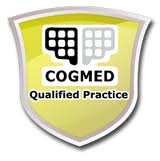Cogmed Working Memory Training

- Do you have difficulty memorizing information?
- Do you struggle to retain information during multi-step tasks, such as math?
- Do you or your child require significant repetition to learn new information?
- How often do directions need to be repeated in order understand and implement them?
- Is it challenging to do two things simultaneously, such as listen and take notes?
If any of these answers are “yes” for you or your child, keep reading!
Nearly all aspects of human life depend on memory. Problems with memory can prevent and/or interfere with how we get the skills and knowledge that are necessary in order to be successful in life. Memory problems frequently are the cause of learning struggles, but often are overlooked as such. Over the past 35 years, working memory (WM) has emerged as an important area that impacts memory performance.
Working memory is defined as management, manipulation and transformation of information drawn from either short- or long-term memory. More importantly, WM is necessary for skill mastery, dealing with new information / problems / situations, maintaining new information and retrieving old information.
Why is WM important for learning? Mainly because of its limitations or limited capacity. A typical individual can manipulate only about four pieces of information at a time in WM. Unless the information is being manipulated, it remains in WM for only about two seconds. Successful learning is largely a function of the individual’s WM capacity. The more automatic a task, the less WM required.
Conditions that have been shown to have WM deficits include ADHD, autism, cognitive disabilities, acquired brain injury/TBI, schizophrenia, stress and aging.
A significant relationship exists between the capacity of WM and the ability to learn. Documented significant relationships have been found between WM and the following areas of learning:
- reading decoding
- reading comprehension
- language comprehension
- spelling, following directions
- vocabulary development
- note taking
- written expression
- reasoning
- complex learning
Interventions to improve WM fall under two different categories:
1. Remediation = correcting a WM deficit by addressing the area of weakness directly.
2. Compensation = using the individual’s cognitive/memory strengths and assets in an effort to bypass the deficit, thereby reducing its impact on learning and performance.
Until recently, limited success at remediating WM problems has been achieved. However, a training program called Cogmed has been developed recently that scientific studies have shown can improve WM through direct training. This intensive, targeted program was designed by leading neuroscientists to address WM deficits. The training is done at home on a computer and is supported by a coach. Cogmed training is designed to give all users – children, teenagers and adults – the best possible chance for maximizing training effects. Recently, The American Academy of Pediatrics released a new report on evidence-based practices for child and adolescent psychosocial interventions or treatment. In this report, Cogmed Working Memory Training is listed as an evidence-based treatment for ADHD with “good support” in research.
Compensatory strategies also can be introduced to support the client while s/he is undergoing Cogmed training, including:
- Daily review and checking of homework.
- Clear and structured presentations with lots of demonstrations, examples and questions.
- Initial, teacher-guided practice until success rate of 80% is reached.
- Guided practice and immediate corrective feedback until the student performs the skill independently.
- Independent practice until responses are firm, quick and automatic with 95% accuracy.
- Weekly and monthly reviews including systematic review of previously learned material.
- Reducing the complexity of communications such that the student can focus on one topic at a time.
- Not requiring multi-tasking within the classroom.
Contact CNLD Neuropsychology at (734) 994-9466 for More Information about our Cogmed Working Memory Training
Resources
Dehn, Milton. (2008) Working Memory and Academic Learning: Assessment and Intervention. ISBN #: 9780470144190.
Pickering, Susan J, editor. (2006) Working Memory and Education. ISBN #: 9780125544658.
http://www.cogmed.com/research


